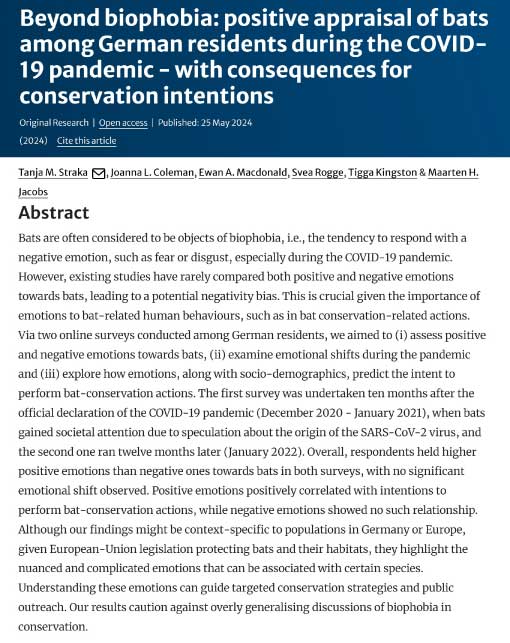In this latest social-science paper, led by Dr Tanja Straka, of Berlin’s Freie University, we challenged the almost dogmatic notion that bats are objects of biophobia. Yes, abundant evidence suggests that bats are undeservedly maligned in many contexts. And our personal experience as bat experts supports that—tell people you study bats and many will react with visible disgust. But some will express surprise, curiosity and even fascination.
We surveyed adults residing in Germany twice during the COVID-19 pandemic, to test the idea that the pandemic might have exacerbated any negative emotions (given the putative role of certain bats as reservoirs of the ancestor to SARS-Cov-2, the virus that causes COVID-19). We also examined the influence of emotions on people’s intentions to get involved in bat conservation.
Our research demonstrates that, at least in this population, negative emotions DO NOT prevail. On the contrary. Respondents mainly expressed neutral to positive emotions. The pandemic did not seem to result in any emotional shift. And positive emotions predicted respondents’ willingness (or stated intent) to do something to conserve bats.
So, do we think this means that the population we studied is somehow unique? Probably not. Instead, our results may highlight some negativity bias in prior studies. Meaning, earlier research may have simply focused inordinately on negative emotions (and attitudes) and not enough on positive emotions. And if positive emotions matter more than negative ones in terms of getting people to act on behalf of bat conservation, then it is a good idea to study those.

